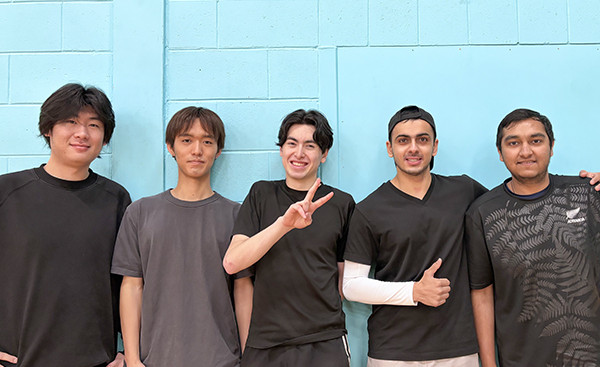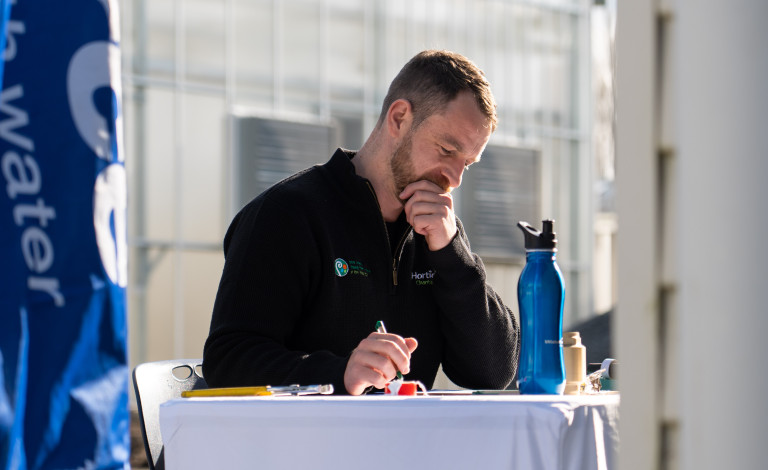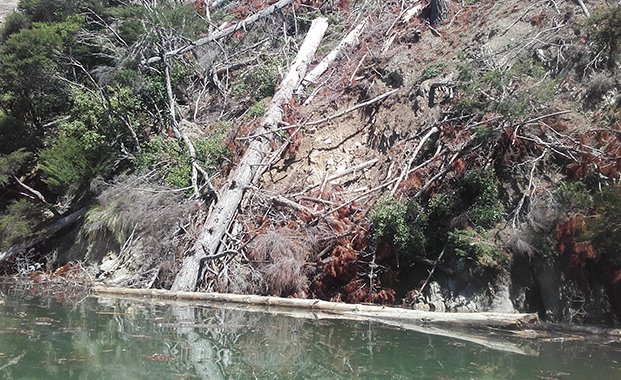Presentation success a team effort
25 September 2024 | News
Flatmates, friends, judges, her lab group and the Toastmasters.
It took a wide range of people to help Kaitlin Watson nail her Three Minute Thesis (3MT) presentation, which resulted in her winning third place.
The competition challenges postgraduate students to explain their work in just three minutes, forcing them to cut out the jargon and make it accessible to a general audience.
That process took quite a while for Kaitlin, who revised her work many times between the heats and the Lincoln University final.
The Soil and Physical Sciences PhD student presented on regenerative pasture agriculture, detailing the different experiments she was conducting and the impacts they could have for farmers.
“The whole point of the trial is to validate regenerative agriculture. Is it something that’s viable and is it worth implementing in New Zealand farming?”
“Some farmers practice regenerative agriculture, but nobody’s put numbers behind it in New Zealand pasture systems.
“I thought to myself ‘is this worth it? Is this sustainable? Is this profitable? Or are New Zealand farmers already doing the best they can?’”
It was a farm placement in her undergraduate degree that sparked her interest in the topic.
Kaitlin found the science exciting, but explaining why was not an easy task. She especially felt nervous in the heats as she had not had much time to refine her work.
“My heats speech was more big-picture, but the judges wanted to know more about the experiment and the actual science I was doing.
“I had a one-on-one with an AgResearch Toastmaster here and she was really good at helping me cut out stuff.
“There was a lot that just didn’t need to be there. It went through quite a lot of revisions.”
She also worked with her lab group, who could approach the issue with a different perspective but still an academic mind.
When it came to presentation skills, Kaitlin’s flatmates proved a valuable audience, as did the local Liffey Toastmasters group.
The Liffey Toastmasters invited all finalists to present and offered feedback on their delivery.
“We were all a bit nervous. They gave some really good feedback.”
Her presentation focused on just one chapter of her thesis, avoiding the technicalities of social science and instead only covering the concept of her trials.
Katilin has been working on the regenerative agriculture dryland experiment (RADE), which is a farmlet scale experiment grazed by sheep on the Lincoln University campus. Half of the plots she is working on are a conventional monoculture of lucerne, the other half are a regenerative mix of 12 different pasture species.
Each farming system has plots dedicated to low and high phosphorus fertiliser schemes. The results could show if there were differences in pasture production and nutrient cycling between conventional and regenerative agriculture under different fertility levels.
If the research is successful, she could help pave the way to a more sustainable, productive and financially secure future for the industry.
“I’m not going to be able to answer the whole question of regenerative agriculture, but hopefully I’ll be able to contribute my piece of the pie.”
She would have liked to focus more on the soil science, but focused on what would be most accessible to the audience.
“Maybe I can make that a challenge for next year’s competition.”


